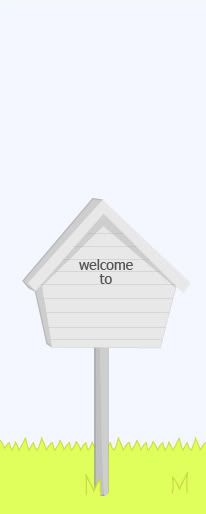Sunday, May 11, 2008
For the past 3 weeks mugging in school, I can only remember it raining once or twice. This just shows how bad global warming is nowadays. Thus it is really important for every single one of us to do our part to conserve energy. If everyone of us save a bit, it definitely will add up to quite a significant amount. Instead of waiting for others to do it, why not start with yourself?
Some energy-saving tips (with courtesy of National Climate Change Committee):
Air-conditioning
- The air-conditioning unit achieves cooling by removing heat from the room, consuming electricity in the process. Thus, reducing the amount of heat gained by the room will reduce the amount of electricity consumed for air-conditioning. Consider using sun-shading devices, blinds or solar control film to keep out heat gained by the room through windows.
- The size, or cooling capacity, of air-conditioning units is usually specified in terms of Btu/hr or kW. (1 kW = 3410 Btu/hr) Ensure that the air-conditioning unit is properly sized to meet the amount of cooling required, as oversized or undersized air-conditioning units can cause reduced comfort and operate inefficiently.
- Multi-split units are generally more energy efficient than separate single-split/ window units in air-conditioning multiple rooms simultaneously. Consider a multi-split units if you usually require air-conditioning in more than one room.
- The thermostat senses room temperature to regulate the operations of the air-conditioning unit. Avoid placing lamps, TV sets, or other heat generating appliances near the air-conditioning thermostat, which may cause the air-conditioning unit to operate longer/harder than necessary.
- The energy consumption by the air-conditioning unit increases with the difference between the room and outdoor temperatures. Set your thermostat as high as comfortably possible. You may wish to consider thermostat setting of 25°C.
- Dirty air filters impede airflow, leading to increased energy consumption. Check the air filters once a month and clean or replace them as necessary.
- Besides the air filters, the condition of other components of an air-conditioning unit (such as the refrigerant, pipes and motors) also affects its efficiency. You may also wish to consider regularly servicing your air-conditioning units.
- Direct sunshine on the air-conditioning unit's outdoor heat exchanger decreases its efficiency. Consider shading the air conditioner where necessary, but do not block the airflow.
Refrigerators
- Generally, larger models use more energy to operate, so buy the smallest model that meets your needs.
- Consider operating one large refrigerator/ freezer instead of two smaller refrigerators/ freezers.
- Consider the need for additional features such as automatic icemakers and through-the-door dispensers, which increase energy use.
- Avoid placing the refrigerator near heat sources such as sunlight, or other heat generating appliances, as it will make the refrigerator's compressor work harder.
- Ensure that there is sufficient space for proper airflow near the compressor and condenser coils.
- Ensure that the door seals (gasket) are air tight by closing the door on a thin piece of paper. Consider replacing the seal if the paper does not stay in place.
- Uncovered foods release moisture and make the compressor work harder. Cover all food and liquids and allow hot food to cool before placing it in the refrigerator.
- Avoid overcrowding the refrigerator as too many items obstruct air circulation and reduce cooling capabilities.
- Decide what you want before opening the refrigerator door.
Lighting
- Switch lights off in unoccupied rooms.
- Consider installing dimmers, timers, and sensors, to control the amount of time and level of lightings required.
- Use fluorescent tubes or compact fluorescent lamps, as they are energy-efficient and long-lasting.
- Clean the lights and fixtures regularly.
- Consider the use of task lighting to focus more light where required, allowing lower lighting levels for general areas.
Computer
- Ensure that the monitor power management feature is enabled to realise the energy savings. Monitors in sleep mode consume significantly lower amount of electricity, and the reduction in heat generated also lowers air-conditioning requirements.
- The energy consumption of LCD monitors can be half to two-thirds of that for a CRT monitor.
- Switch off the computer completely when not in use for long periods (e.g. more than 30 minutes).
Washing Machine
- Wash a full load of laundry at a time. Alternatively, you could set the water level to match the amount of laundry.
- A significant amount of energy used is for heating of water. You may wish to consider the need to wash with the hot water cycle. Alternatively, use cold water during the rinse cycle to cut a load's energy use in half.
- Use the right amount of detergent to avoid having to wash or rinse the load again.
- Pre-soak or use a soak cycle when washing heavily soiled garments to avoid two washings and save energy.
6:54 PM




